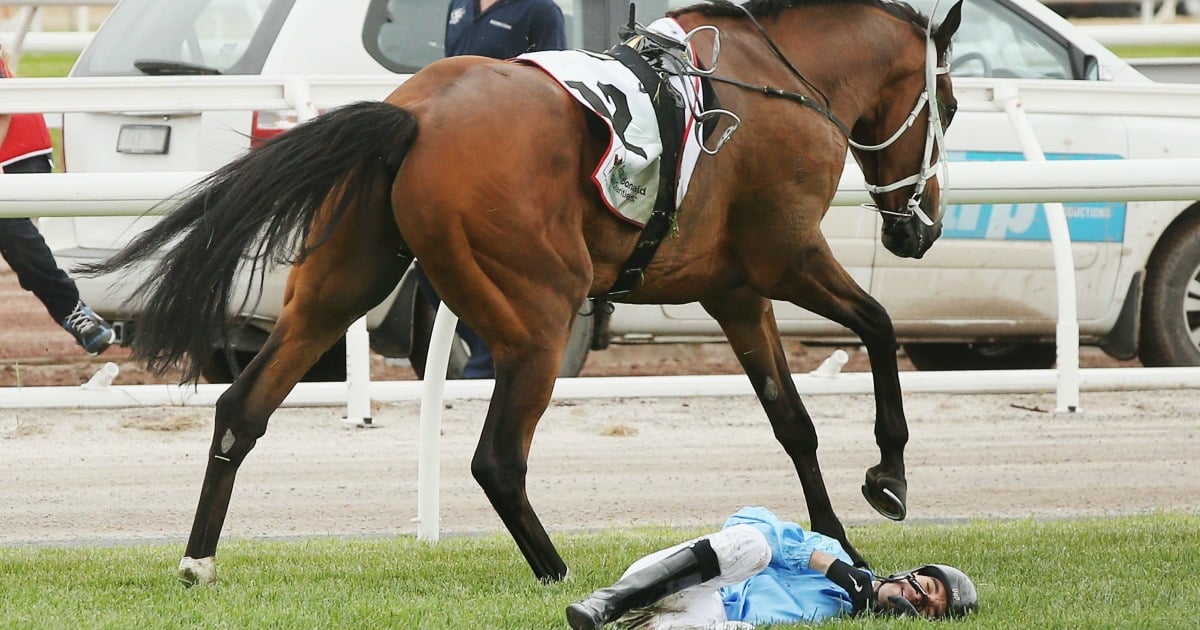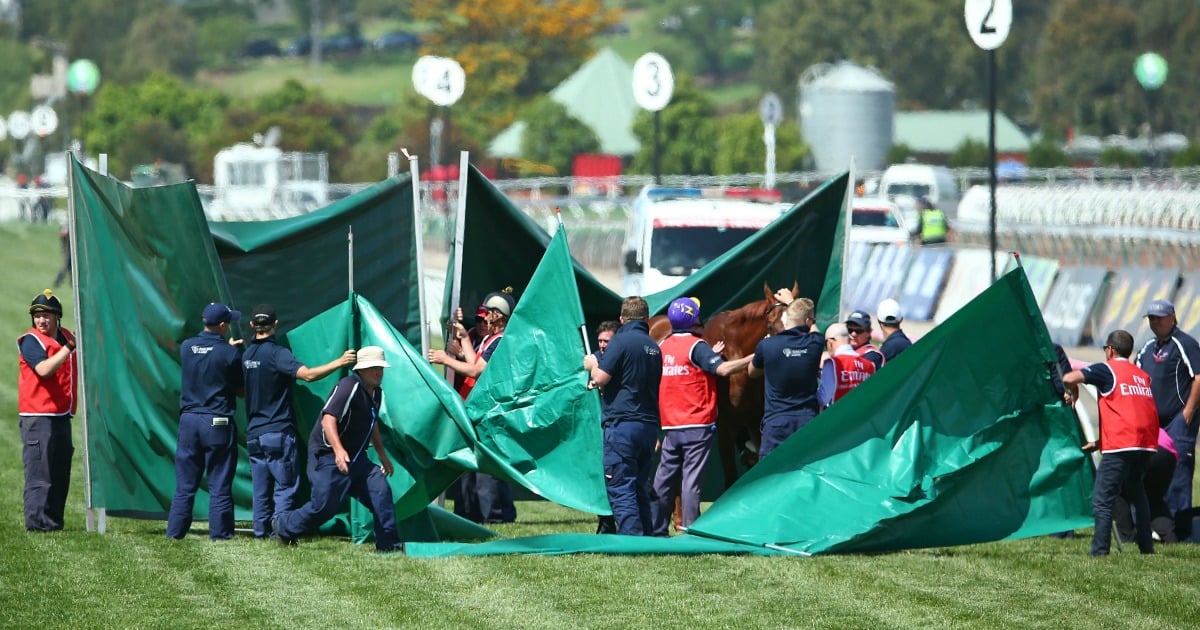Update: Just minutes after running in the 2018 Melbourne Cup, The CliffsofMoher was put down after suffering a fractured right shoulder. He was euthanised on track.
Regal Monarch was five years old.
On Tuesday, November 7, 2017, he prepared to run in race four at Flemington Racecourse, on the most popular day of horseracing in the country. He had jockey Joao Moreira on his back, and just before 1pm, he took off to run his 2800m race. But in the closing moments, Regal Monarch clipped the heels of a horse in front of him, and had a sickening fall. Moreira fell hard onto the turf, and was ruled out of a later race. While the horse could walk, he was taken away in an ambulance.
Later that day, it was announced that despite desperate attempts to save him, Regal Monarch had died.
“Regal Monarch was immediately attended to by our veterinary team after a fall in race four and was transported to the University of Melbourne Veterinary Clinic in Werribee for further assessment,” said Racing Victoria head vet Dr Grace Forbes.



Top Comments
Sadly many humans have not evolved to have compassion for animals. They consider horses money making machines, something to thrash so all concerned can make money to buy a newer car , a flashy house, another boat. Greedy bastards who don't care for animal welfare. They make me sick, ostentagious rat bags.
And Another year another horse